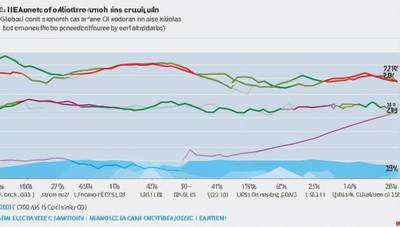IEA: Global oil and gas production is declining rapidly, IEA reports
International Energy Agency (IEA) said Tuesday that the decline in oil and gas production from mature fields around the world is increasing due to a greater reliance on deep-ocean and shale resources. This means companies will need to invest even more to maintain output.
Donald Trump's administration has criticized the IEA for its recent shift in focus to clean energy policy. According to a report from the IEA for 2021, there should be no new investment in oil, coal and gas projects if we are serious about meeting our climate targets.
The report released on Tuesday warns that if we don't continue to invest in existing fields the world will lose an equivalent amount of oil each year as Brazil and Norway combined. This would have implications for markets and security.
In an IEA press release, Fatih Bibil said that only a small part of the upstream investment in oil and gas is dedicated to meeting increases in demand. Nearly 90% of annual upstream investment is dedicated to compensating losses in supply at existing fields.
Our new analysis shows the decline rates have increased in recent years.
The IEA, based on data collected from 15,000 conventional oil and gas wells around the globe, said that the average annual drop in production after reaching peak was 5.6% for oil fields and 6.8% for gas fields.
The IEA has estimated that a halt to upstream investments would reduce oil production by 5.5 millions barrels per year. This is up from less than 4 million bpd a year ago. The IEA said that a halt in upstream investment would cut oil supply by 5.5 million barrels per day each year, up from just under 4 million bpd in 2010.
It said that the decline in natural gas is now 270 billion cubic meters per year, up from 180 bcm.
The IEA and the Organization of Petroleum Exporting Countries have been at odds over the IEA's 2021 report. Its forecasts call for a relatively rapid energy transition, and a peak of oil demand in 2030.
In a Tuesday statement, OPEC criticised the IEA report. The agency did not mention how its report for 2021 and forecast of peak oil demand had discouraged investments and contributed to long-term uncertainty.
"In contrast to IEA's U turn on this important question, OPEC has consistently advocated timely investments in oil industry to meet increasing demand and account for declining rates," OPEC stated. Reporting by Seher dareen, London. (Editing by Alex Lawler and Edmund Klamann)
(source: Reuters)






